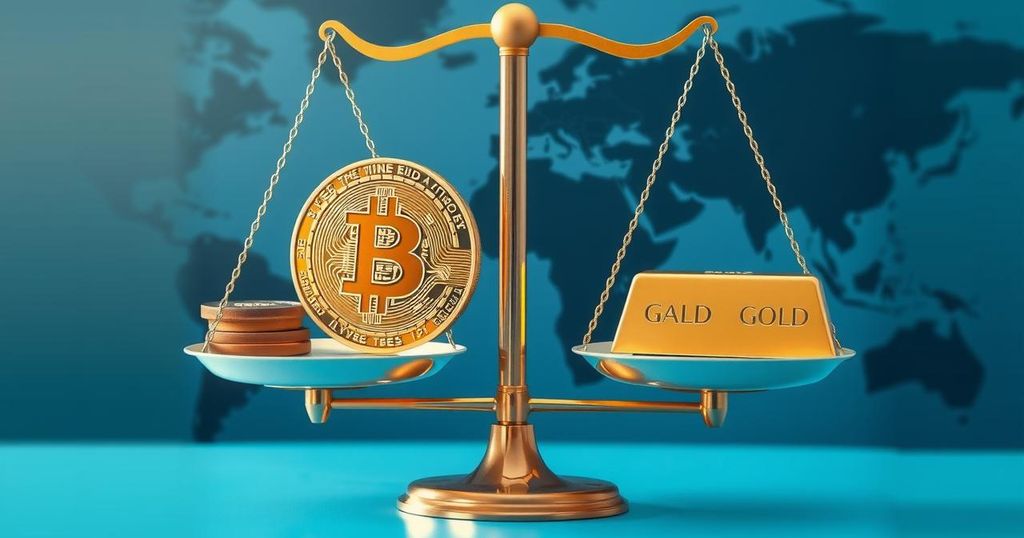Could Bitcoin Replace the Dollar as the World’s Reserve Currency?
Wolfgang Münchau explores the potential for Bitcoin to replace the dollar as the global reserve currency amidst increasing tariffs. He highlights the dollar’s current dominance, issues with the euro, and challenges facing the renminbi. Gold’s status as a reserve asset is discussed, along with the implications of cryptocurrencies. The need for an asset not controlled by any superpower becomes evident as global economic dynamics evolve.
Bitcoin may have the potential to replace the dollar as the world’s reserve currency, as proposed by Wolfgang Münchau, a columnist at DL News. He argues that continued tariff policies could erode the dollar’s status, which has significantly functioned as the global currency due to the U.S. being open to trade and investment without excessive restrictions. As tariffs increase, countries may turn away from the dollar, looking for alternatives like Bitcoin or gold.
The dollar currently accounts for around 60% of global reserves, with the euro at 20%. Discussions about the euro becoming a safe haven currency are ongoing; however, it lacks the characteristics that have historically underpinned reserve currencies. Foreign central banks primarily hold U.S. Treasury bonds as their nations run large trade surpluses with the U.S. Any increase in import costs from tariffs means these countries would have fewer dollars to invest.
Historically, reserve currencies have not simply changed due to preference; they solely depend on economic dynamics. The pound gave way to the dollar post-World War II, and while the euro was anticipated to challenge the dollar’s dominance, it failed due to significant issues such as the absence of a political union and a lack of a unified bond market.
The Chinese renminbi is not in a position to take over the dollar’s role either, mainly due to non-convertibility and significant capital controls. Smaller currencies like the Swiss franc do not have the scale required to rival the dollar.
The concept of gold emerging as a leading reserve asset also arises. Speculation surrounds a potential large-scale gold-for-dollars exchange, which could devalue the dollar and reconfigure international trade dynamics. This is distinct from reinstating a gold standard; it pertains to the usage of gold as a reserve asset.
Similar to gold, cryptocurrencies may fulfil the criteria for reserve assets, sharing certain monetary characteristics. However, their path to becoming a recognised reserve currency remains uncharted. Still, U.S. President Trump’s potential initiative of establishing a strategic cryptocurrency reserve under Treasury oversight could signal a shift in this direction.
Federal Reserve Chair Jerome Powell may oppose elevating cryptocurrencies to full reserve status, but shifts in leadership could change this narrative. The Trump administration’s approach to cryptocurrencies aims towards maintaining control; however, the inherent nature of cryptocurrencies might resist such attempts, as their mobility surpasses gold’s physical limitations.
For reserve managers, the priority is the security and transactional reliability of reserves rather than maximising profit. In the face of U.S. tariffs, the risk associated with holding treasury securities could favour cryptocurrencies. Resistance to including Bitcoin in reserves from traditional central bankers is likely, but a changing international landscape may necessitate broader perspectives on reserve assets. In a multipolar world, the need for a neutral asset, free from geopolitical control, becomes essential, positioning both cryptocurrencies and gold in this critical role.




Post Comment